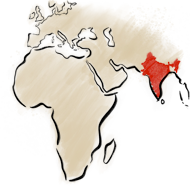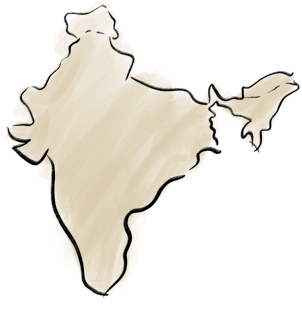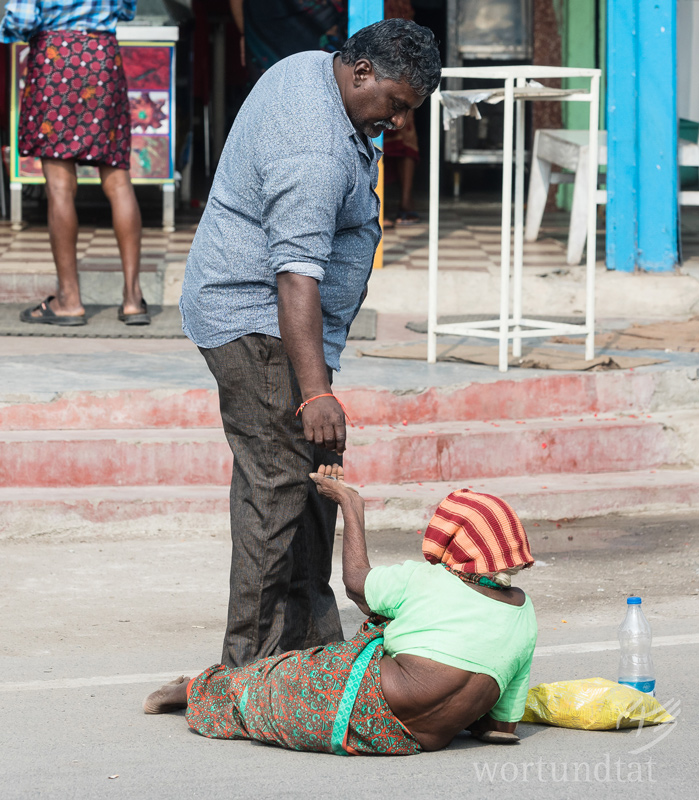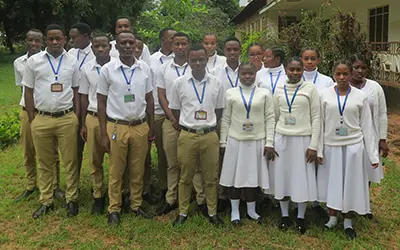
India
End stigmatisation and give new hope
Through the caste system, people are excluded from society.
As day labourers,
people from the lower classes often don’t earn enough to live on.
Poorly educated people
often suffer hunger and great hardship in rural regions.
About 15 percent
of the Indian population are considered malnourished.
In India, we cover these areas with aid:



Indien
Stigmatisierungen beenden und neue Hoffnung geben

Through the caste system,
people are excluded from society.
As day labourers,
people from the lower classes often don’t earn enough to live on.
Poorly educated people
often suffer hunger and great hardship in rural regions.
About 15 percent
of the Indian population are considered malnourished.
In India, we cover these areas with aid:
Help for people with disabilities
– A task for society as a whole
Whether sight, hearing, speech or mobility impairments, mental illness, and psychological and other disabilities – disabled people are particularly challenged in everyday life and often require special support. In India, these people have a lobby that has been active for several years. A separate department at the Indian Ministry of Social Justice addresses their concerns. This department wants to integrate people with disabilities more closely into society.
They should be given better opportunities to take part in working and social life to earn their own living and to have a say. They need to be provided with tools and family, teachers and other people assisting and helping them learn how to deal with the limitations appropriately. According to the Ministry, the attitude of Indians also needs to change so that people with disabilities are regarded as full members of society.
This task also calls for the commitment of civil society organisations. wortundtat has found a partner that is involved in this area and whose commitment is shaped by Christian fundamental values. Cooperation has been planned for several years.
Our partners in India
All photos on this page are illustrative only and – unless otherwise shown – are not related to projects.
People with disabilities need support
– especially important in rural areas
- The issue of inclusion is largely ignored and infrastructure – roads, public buildings, educational institutions and local public transport, etc. – is virtually unprepared.
- In the still broad social strata, in which the caste system is especially pronounced, disability is regarded as a consequence of divine punishment. This affects both people without and with disabilities alike: Some look down on others and people with limitations have low self-esteem.

The spotlight is on women and children with disabilities
– making inclusion possible
In addition, people are provided with tools that make learning and taking part in life easier for them or even enabling them to do this for the first time. Help may be a wheelchair, glasses, a hearing aid or any other kind of help. The underlying idea: if entry barriers into society are overcome using appropriate tools, people with disabilities will have the same opportunities as people who are not so limited.
India – Living with disabilities
The wortundtat partner focuses on women and children in particular. In the male-centric society of India, they face a particularly difficult time when they have physical disabilities.
Joy of life and taking part in social or working life are not impaired for people with disabilities …
For many jobs, people don’t need to be physically or mentally fully competent, but they only need someone to show them how to do the task.
Appropriate resources are often lacking, and people are resorting to emergency solutions. Our work should also help in such situations. So, this man can get around better on crutches.
Current reports from our projects
New Chief Physician at the Moldova Medical Centre
A cardiologist joins the team of dedicated doctors who care for the sick and dying in Ceadîr-Lunga.
Clinical officers sit exams
The first students have successfully completed their three-year training.
outpatient care helps in the moldovan republic
An outpatient palliative and nursing service run by wortundtat helps the elderly and sick in the Republic of Moldova who would otherwise remain alone.












